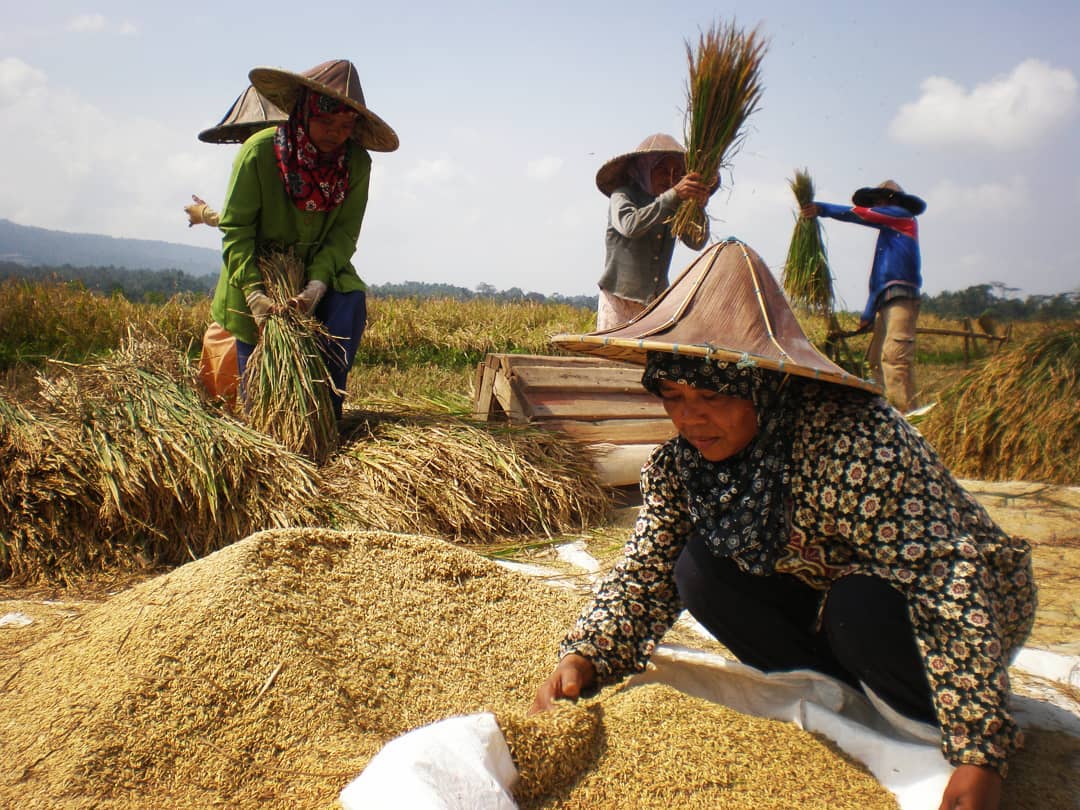The corona crisis harms those who feed us

(This op-ed had originally appeared in the Swedish daily Aftonbladet on 17 April 2020)
In order to ensure the production and availability of food, we must rethink our approach. Today’s food system is environmentally and socially unsustainable. The only winners are multinational companies.
Instead, we need a food system based on sustainable methods that puts people’s right to healthy food at the center and protects those who provide us with food against violence and hunger.
In light of Covid-19, it becomes evident that we live in a globally interconnected and vulnerable world. This also applies to the global system of food production.
In the early 1990s, Swedish farmers produced 90 percent of the country’s food. Today the figure is down to 50 percent. If we include imported feed, the figure for Sweden’s self-sufficiency is 25 percent. This means that only every fourth bite consists of food produced in Sweden.
In SVT News, Sweden’s rural minister Jennie Nilsson replied that this is not a problem as long as the transport chain is not broken. However, if there is anything that the Corona pandemic has shown, it is that the conditions for world trade can change very quickly.
The world’s small scale farmers account for about 70 percent of food production globally, but use less than 25 percent of land and water, while industrial agriculture produces 30 percent of our food but controls 70 percent of land.
Today, on April 17th, the International Day of Peasants’ Struggle, we want to give attention to the people who feed us. We want to highlight the violence and vulnerability that the world’s smallholder farmers are exposed to in the wake of the spread of industrial agriculture and the growing trade in land and natural resources.
The agricultural and food industry is the sector where most human rights defenders and environmentalists are murdered in the world.
Here Sweden is directly complicit. Low food production in Sweden means increased pressure on land and other resources in other parts of the world. State pension (AP) funds’ investments in land in Brazil also directly contribute to environmental degradation and displacement of rural people.
The UN is now warning that the pandemic will increase world hunger. Even before the pandemic, 810 million people suffered from hunger. About 80 percent of those live in rural areas with food production as the main source of income.
The Rural Women’s Assembly in Southern Africa (RWA),has pointed out that there is no strategy for including products from small-scale producers in the supply chain in the pandemic management measures.
Local markets have been forced to close, while those controlled by large industrial food companies are considered socially important and kept open.
This measure affects local farmers economically and reduces public access to food.
The pandemic shows us that small scale farmers are more important than ever to secure access to food in different parts of the world.
Our partner organizations work with agroecological agriculture to withstand this and other crises such as climate breakdown.
In order to reduce the spread of Covid-19, small scale farmers in Argentina and Brazil have organized home deliveries of agro-ecological food at reasonable prices. But the majority of the world’s smallholder farmers lack protection from violence and rights to land, seeds, water and other natural resources.
That is why the global smallholder farmer movement La Via Campesina, together with allies, has worked out a UN Declaration on the Rights of Peasants and Other People Working in Rural Areas, which was adopted in 2018.
Sweden was one of 8 countries that voted against. However, 121 countries, mostly from the global South, supported the declaration.
In order to ensure the production and availability of food globally, there must be a change. Through agroecological agriculture and forestry, we can create food preparedness for future crises.
We require the Swedish government to adopt a food strategy with disaster management for the future based on sustainability and food diversity.
We demand that the Swedish government reconsider its previous position on the UN Declaration on the Rights of Peasants and Other People Working in Rural Areas (UNDROP) to ensure food security, healthy diets and to protect people from violence, threats and oppression.
This article was jointly prepared by the Makten över maten/Power over Food Network – Eva Jonsson, Board Member of Nordbruk-Vía Campesina, Mikael Sundström, chairperson of Jordens Vänner, Klara Knapp, chairperson of Latinamerikagrupperna, Louise Lindfors, secretary general of Afrikagrupperna, Hanna Dahlström, head of FIAN Sverige, and Josefin Winberg, spokesperson of Framtidsjorden.
